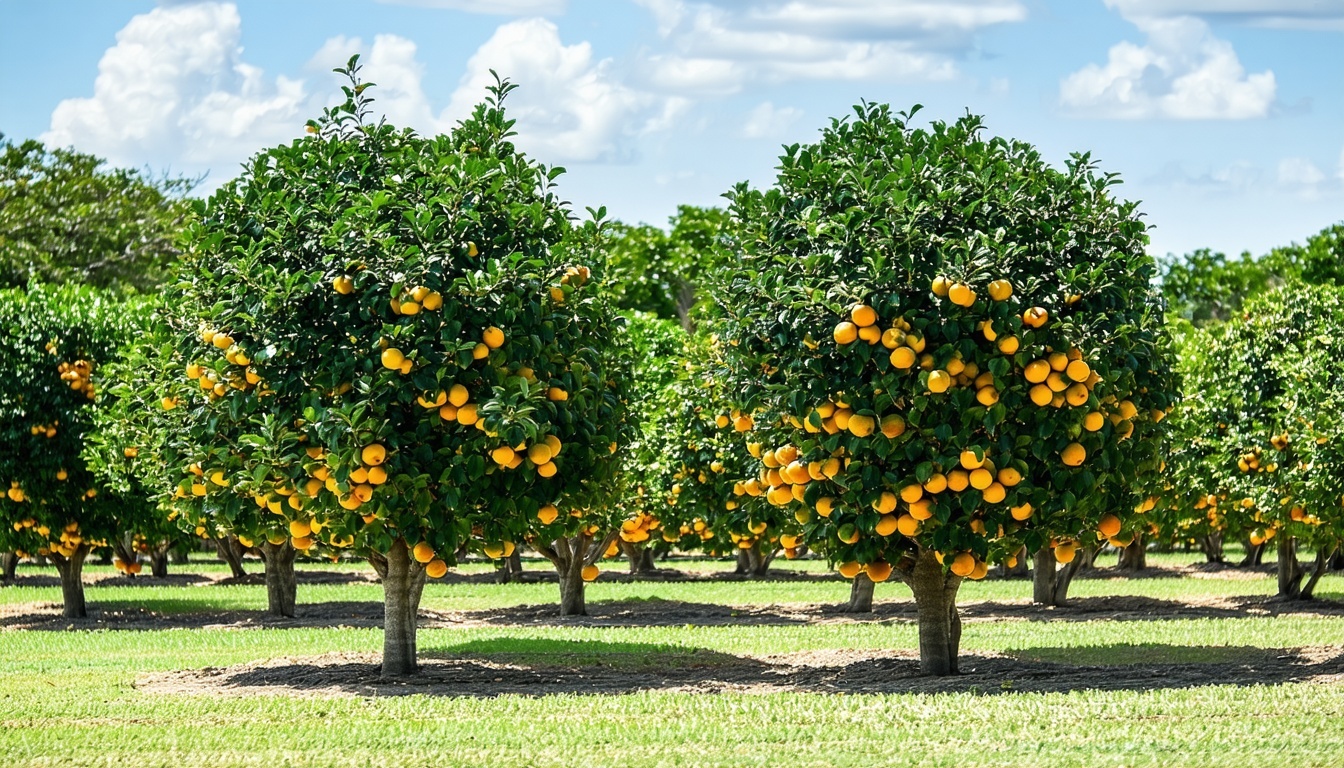Florida Agricultural Loans: Supporting Citrus Farms and More
From iconic citrus groves to cattle ranches and aquaculture farms, Florida’s $160+ billion agriculture industry feeds millions—and fuels local economies. But sustaining and growing a farm in the Sunshine State requires more than good soil and sunshine. It requires capital.
This guide explores how Florida agricultural loans support citrus farms and more, breaking down the best financing options, eligibility, and insider resources for farmers across the state.
Why Agricultural Financing Matters in Florida
Farming in Florida presents unique challenges:
-
Hurricanes and unpredictable weather
-
Rising land and equipment costs
-
Pest and disease threats (e.g., citrus greening)
-
Labor shortages and immigration policy shifts
-
Market volatility and global competition
Agricultural loans provide the capital Florida farmers need to stay resilient, modernize operations, and grow profitably.
1. USDA Farm Loans in Florida
The U.S. Department of Agriculture (USDA) offers several loan programs through its Farm Service Agency (FSA)—especially helpful for small, beginning, or underserved farmers.
🌾 USDA Direct Farm Operating Loan
-
Max Amount: $400,000
-
Use: Equipment, seed, fertilizer, livestock, labor
-
Rates: Below-market fixed rates
-
Term: Up to 7 years
-
Eligibility: U.S. citizens engaged in farming; must show ability to repay
🚜 USDA Direct Farm Ownership Loan
-
Max Amount: $600,000
-
Use: Buy farmland, build structures, make improvements
-
Term: Up to 40 years
-
Rates: Fixed, often subsidized
Pro Tip: FSA also offers Microloans up to $50,000—perfect for niche growers, greenhouse operations, or part-time farmers.
7-Step USDA Loan Process for Florida Farmers
(Featured Snippet Section)
-
Identify loan purpose and eligible program
-
Contact your local USDA FSA office
-
Submit loan application with required documents
-
Complete a farm business plan (FSA Form 2037)
-
Undergo credit and eligibility checks
-
Receive approval and loan offer
-
Close loan and use funds as planned
2. Florida Agricultural and Mechanical University (FAMU) Support Programs
Through partnerships with the USDA, FAMU’s Cooperative Extension Program provides outreach and training for:
-
Beginning farmers
-
Underserved producers
-
Sustainable and organic agriculture
-
Agribusiness financing workshops
Learn more at FAMU Cooperative Extension (opens in new tab)
3. Farm Credit of Florida
Farm Credit is a cooperative lender that specializes in agricultural and rural loans throughout the state.
🌱 Loan Types:
-
Land and farm purchase loans
-
Equipment and vehicle financing
-
Operating lines of credit
-
Construction loans for barns, wells, and packing houses
-
Young, beginning, and small farmer programs
✅ Benefits:
-
Flexible underwriting tailored to agriculture
-
No prepayment penalties
-
Patronage dividends (rebates for borrowers)
-
Local branch offices across Florida
Popular with: Citrus growers, cattle ranchers, nursery owners, and row crop producers
4. SBA Loans for Agribusinesses in Florida
While traditional farms may not always qualify, many agribusinesses—like processors, distributors, and farm-to-table startups—can benefit from SBA 7(a) or SBA 504 loans.
SBA 7(a) Loan
-
Max Amount: $5 million
-
Use: Equipment, operating capital, marketing, facility upgrades
-
Terms: 7–25 years
-
Rates: Prime + 2.25–4.75%
SBA 504 Loan
-
Use: Land, real estate, cold storage units, production facilities
-
Structure: 50% bank + 40% SBA + 10% down
-
Fixed, long-term rates
Eligible borrowers include:
-
Citrus packhouses
-
Value-added product manufacturers (e.g., citrus oils, juices)
-
Hydroponic growers and aquaculture businesses
5. Florida Department of Agriculture (FDACS) Resources
The Florida Department of Agriculture and Consumer Services offers educational and operational support, though it does not issue direct loans.
🚜 Key Programs:
-
Florida Farm to You grants (for direct marketing and distribution)
-
Rural and Family Lands Protection Program – helps landowners access conservation easements
-
Best Management Practices (BMPs) training – required for some financing programs
Visit FDACS Business Services (opens in new tab)
Real Example: Citrus Grove Expansion in Polk County
Business: Sunshine Citrus Co.
Need: $450,000 to purchase adjacent grove and install new irrigation
Solution: USDA Farm Ownership Loan + NRCS conservation funding
Outcome:
-
Increased acreage by 30%
-
Cut water usage by 40% with micro-sprinkler system
-
Boosted annual yields despite greening concerns
Takeaway: Pairing federal and state programs can maximize financing and sustainability in Florida ag.
What Florida Agricultural Lenders Look For
✅ Common Requirements:
-
Farm/ranch business plan
-
Proof of income or repayment ability
-
Credit history (FSA works with limited/no credit)
-
Collateral (land, livestock, equipment)
-
Environmental compliance (BMPs, water usage plans)
📁 Required Documents:
-
3 years of tax returns
-
Production history (if available)
-
Asset and liability statements
-
Articles of incorporation (for ag corporations/LLCs)
-
Farm operating plan or forecast
External Authoritative Links
-
USDA FSA Florida State Office (opens in new tab)
-
Farm Credit of Florida (opens in new tab)
-
Florida Department of Agriculture (FDACS) (opens in new tab)
-
FAMU Cooperative Extension (opens in new tab)
Pros and Cons of Agricultural Loans in Florida
| Pros | Cons |
|---|---|
| Tailored to seasonal and ag-specific needs | Can require detailed documentation |
| Low fixed rates and long repayment terms | USDA loans may take longer to process |
| Programs available for underserved producers | May require collateral and strong planning |
| Local and federal support agencies available | Crop/livestock volatility affects approval |
Conclusion: Growing Florida’s Future with Smart Farm Financing
Whether you run a fourth-generation citrus grove or a first-time aquaponic farm, Florida agricultural loans provide the tools to plant, grow, and scale with confidence. By leveraging USDA programs, Farm Credit cooperatives, SBA support, and local institutions, you can finance your vision while preserving your land and legacy.
Final CTA:
Ready to finance your farm or agri-business in Florida?
Start by connecting with your local USDA office, Farm Credit branch, or Florida SBDC to identify the best funding solution for your operation.






